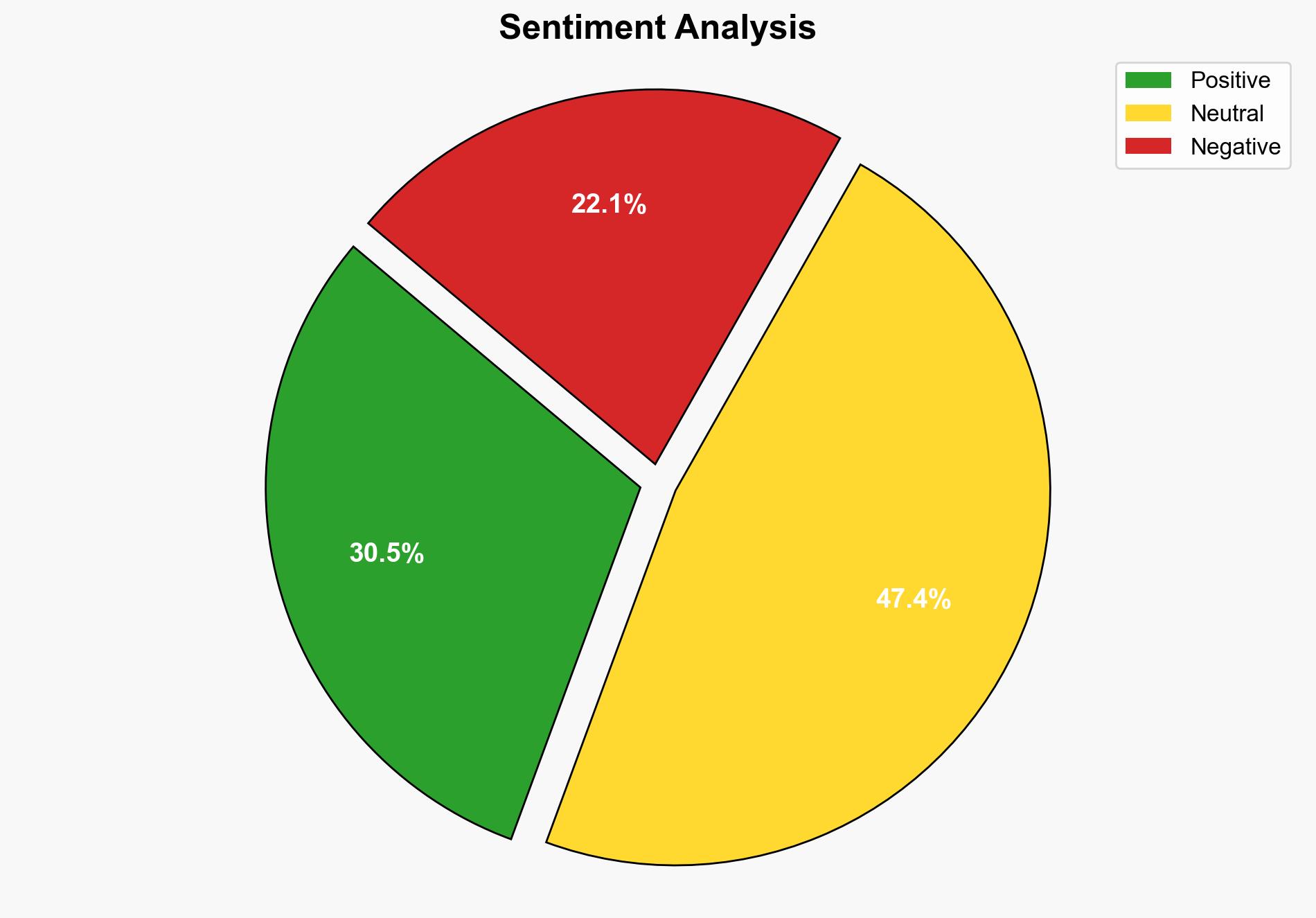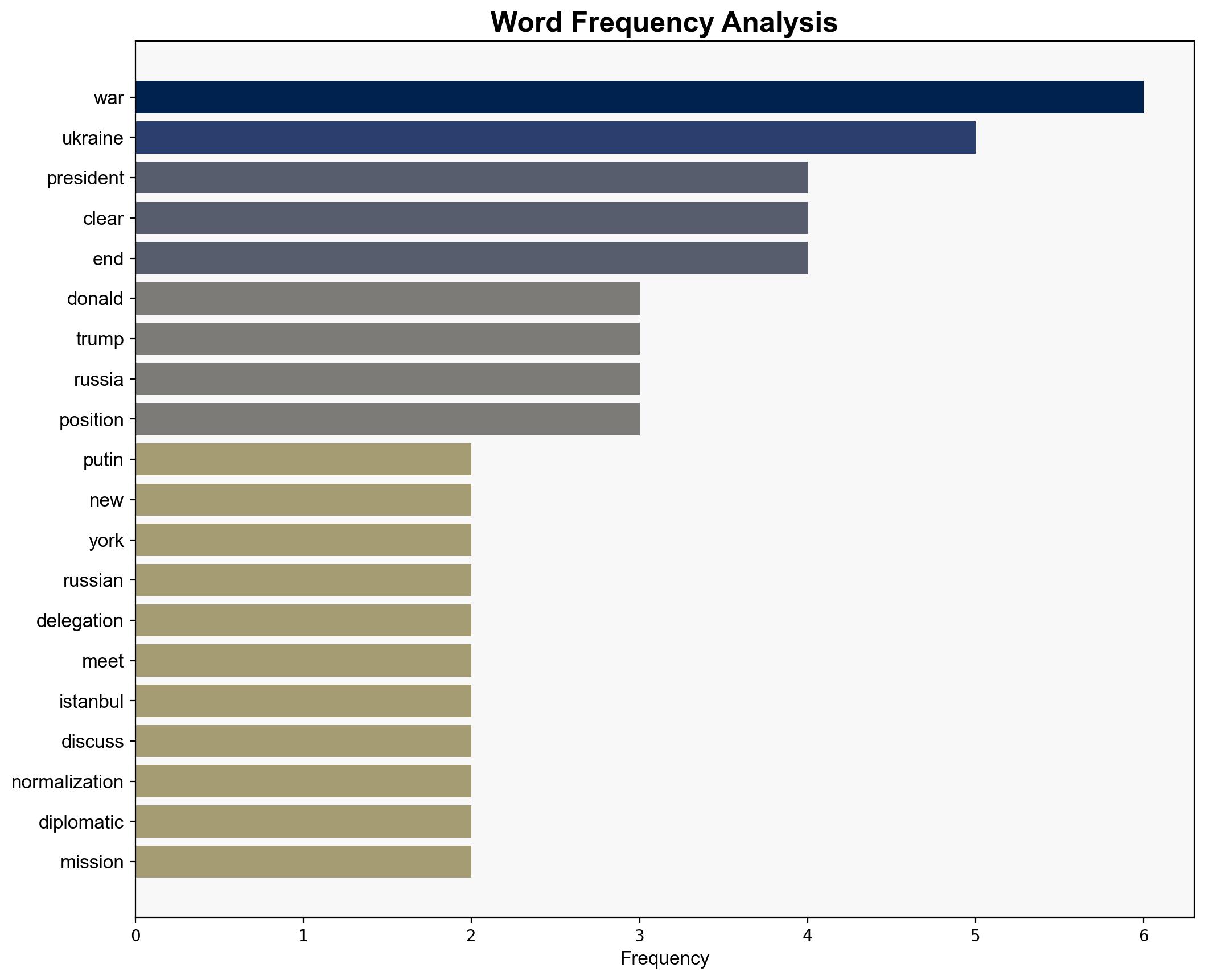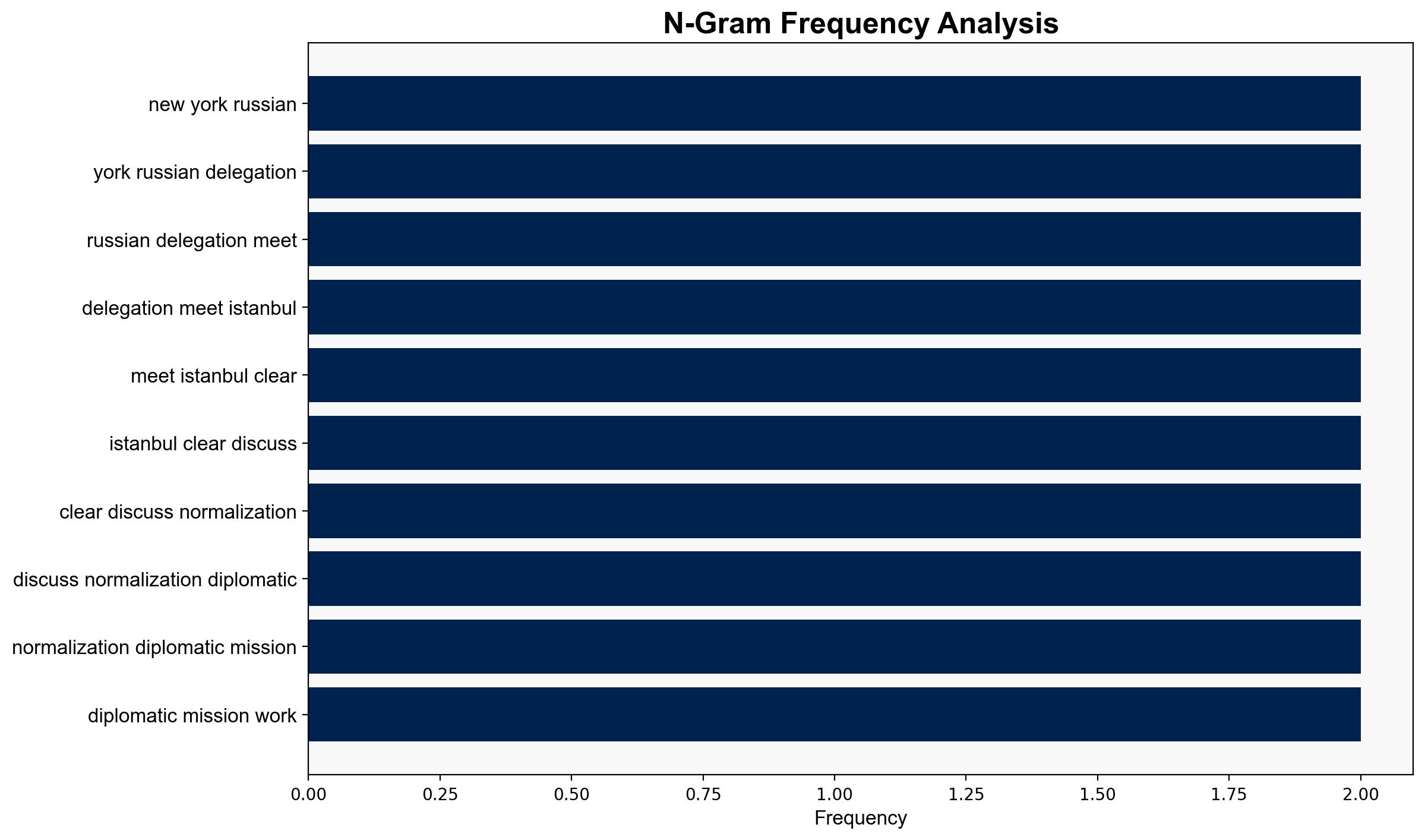The US and Russia Are Negotiating in Bad Faith – Project Syndicate
Published on: 2025-04-11
Intelligence Report: The US and Russia Are Negotiating in Bad Faith – Project Syndicate
1. BLUF (Bottom Line Up Front)
The ongoing negotiations between the US and Russia are characterized by strategic posturing rather than genuine efforts to resolve the conflict in Ukraine. Key findings indicate that both parties are leveraging diplomatic engagements to advance their national interests rather than seeking a peaceful resolution. The lack of commitment from involved parties, including the European Union and Ukraine, exacerbates the situation, with reputational stakes high for all involved. It is recommended that stakeholders prepare for prolonged diplomatic standoffs and consider alternative strategies to incentivize genuine negotiation efforts.
2. Detailed Analysis
The following structured analytic techniques have been applied for this analysis:
General Analysis
The recent meeting in Istanbul between US and Russian delegations was ostensibly focused on normalizing diplomatic missions. However, this engagement is closely tied to efforts to negotiate an end to the conflict in Ukraine. The analysis reveals that Donald Trump is primarily motivated by personal ambitions, such as achieving a Nobel Peace Prize, rather than a strategic resolution. Meanwhile, Vladimir Putin is leveraging economic incentives and strategic demands to strengthen his position. The lack of a unified desire among stakeholders to conclude the conflict indicates a complex geopolitical landscape where negotiations are unlikely to yield immediate results.
3. Implications and Strategic Risks
The continuation of negotiations without genuine intent poses several risks. National security concerns arise from potential escalations in the conflict, while regional stability is threatened by ongoing tensions. Economic interests are at risk due to potential sanctions and disruptions in trade relations. The reputational risks for involved parties could lead to decreased diplomatic influence and credibility on the global stage.
4. Recommendations and Outlook
Recommendations:
- Encourage multilateral engagement involving neutral parties to mediate negotiations and foster trust.
- Implement economic incentives and sanctions strategically to pressure parties towards genuine negotiations.
- Enhance intelligence-sharing mechanisms to better understand the motivations and strategies of involved parties.
Outlook:
In the best-case scenario, increased diplomatic pressure and incentives could lead to a gradual de-escalation of tensions. The worst-case scenario involves further entrenchment of positions, leading to prolonged conflict and instability. The most likely outcome is a continuation of the status quo, with sporadic negotiations yielding limited progress.
5. Key Individuals and Entities
The report mentions significant individuals such as Donald Trump and Vladimir Putin, as well as entities like the US, Russia, Ukraine, and the European Union. These actors play crucial roles in the ongoing negotiations and their strategic decisions will significantly impact the outcome of the conflict.




